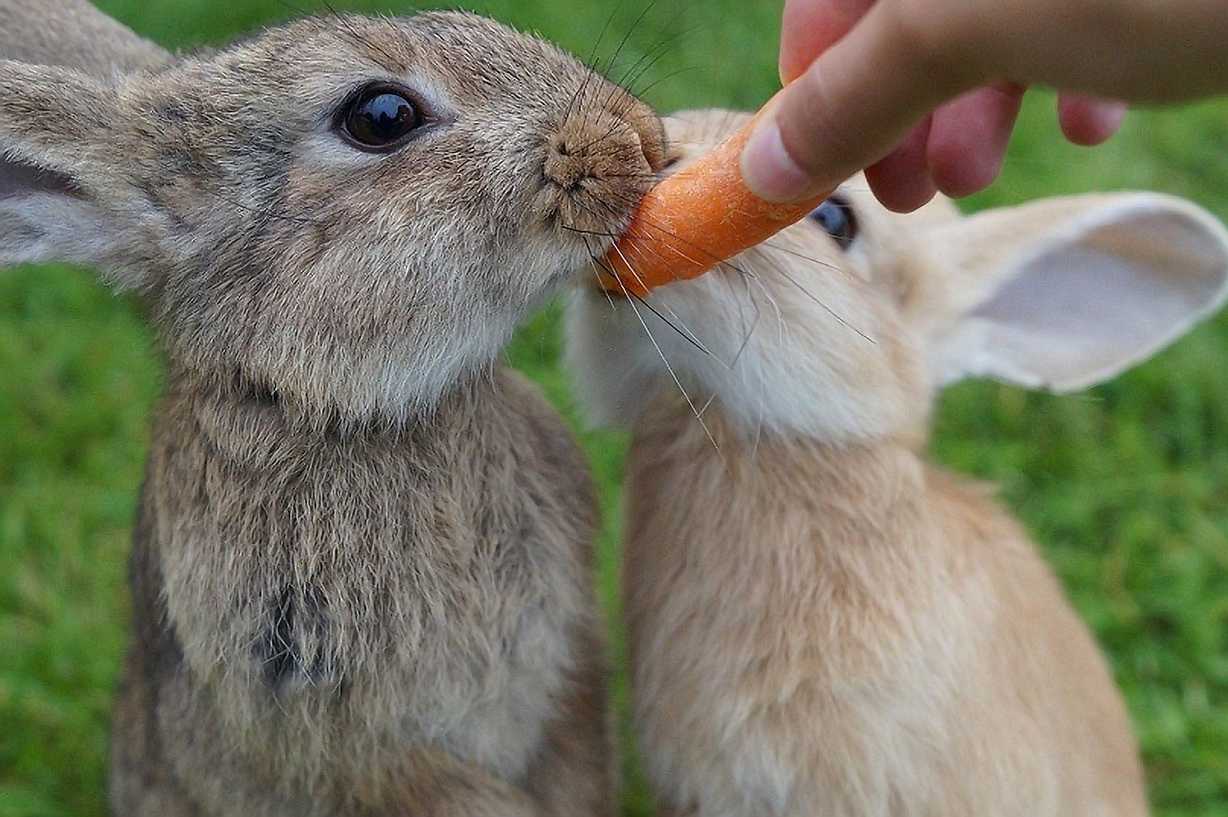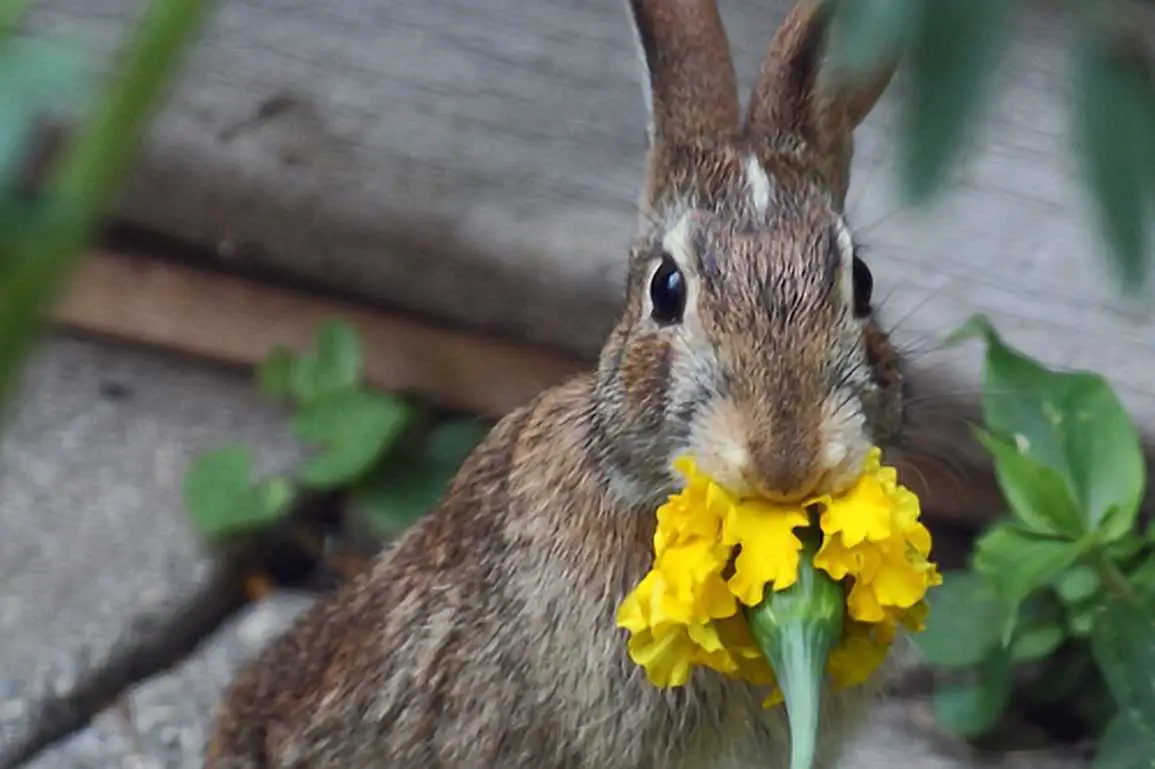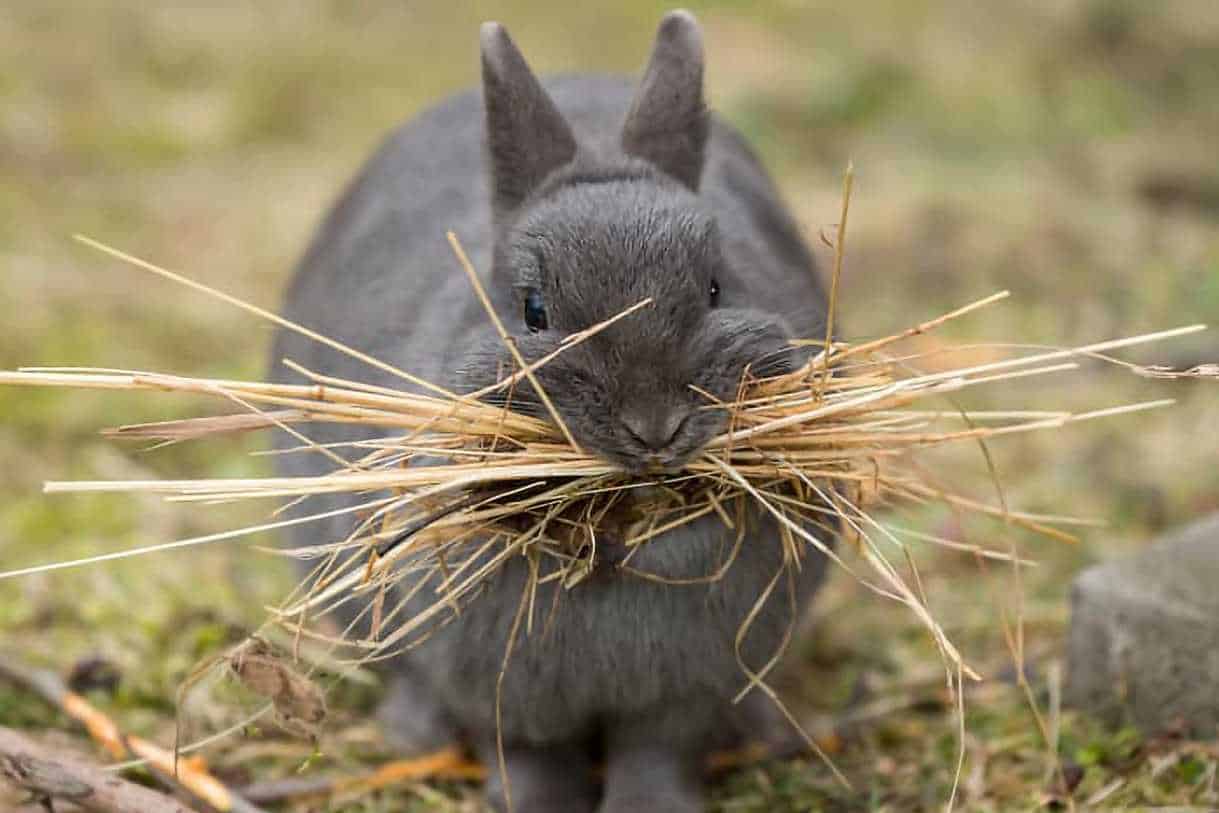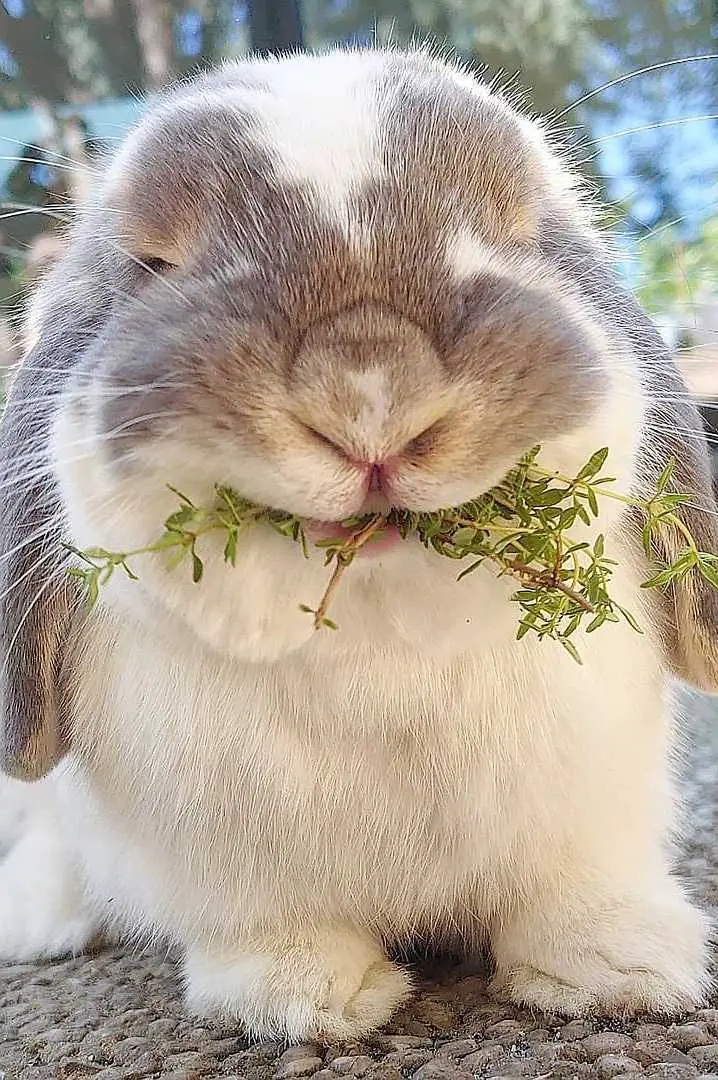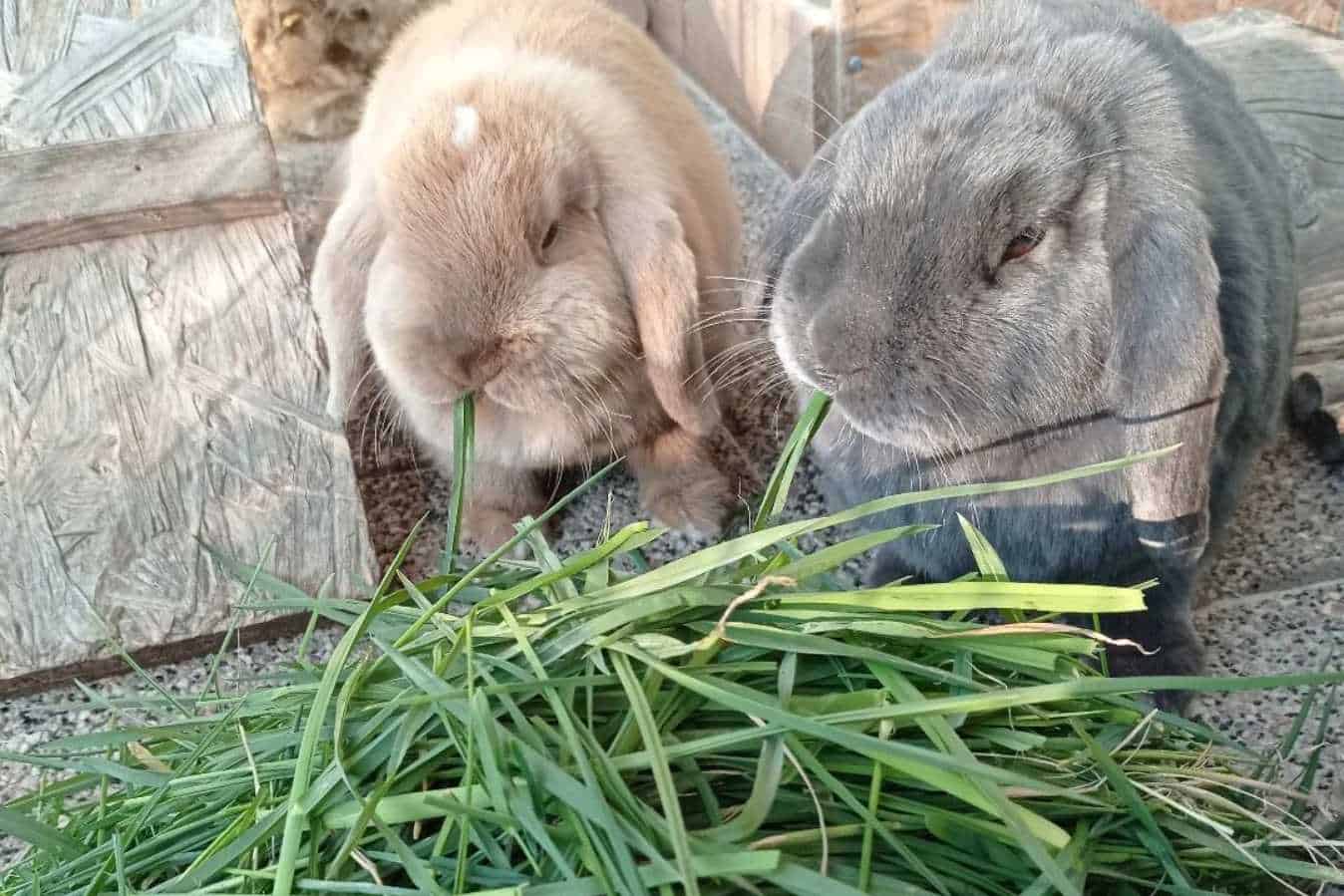Animals are classified into three groups when it comes to food. So, what do bunnies eat? Are rabbits herbivores, omnivores, or carnivores?
Many people are still perplexed by this question. Continue reading to avoid feeding your rabbit the wrong type of food or shopping for the wrong stuff.
What are herbivores, omnivores, and carnivores?
Herbivores
Animals that only consume plants are called herbivores. However, their dietary needs vary. Some ingest the seeds or fruits only. Others are less selective and eat multiple plant parts.
Herbivores feature digestive tracts that can absorb the various types of plants they consume. Their incisors or front teeth are usually large. These teeth help them grab and crush plants. The molars at the back of their mouths help them break up their food.
Cows and buffalos are examples of big herbivores. They feed on grass, the bark of trees, and shrubs. Others are medium-sized like goats and sheep and love grasses. Small herbivores comprise chipmunks, mice, and squirrels. They eat seeds, shrubs, nuts, and grass.
Omnivores
Omnivores are creatures that devour both plants and animals. They benefit from a diverse food supply to meet their nutritional requirements.
Scientists sometimes call omnivores “opportunistic eaters.” They will eat nearly everything available when they’re famished.
Omnivores can locate food at any time of year. For instance, bears enjoy ingesting berries and nuts during summer. They can also hunt fish and small animals in any season.
Carnivores
Carnivores are animals that eat the flesh of other animals. They are called predators because they hunt down other animals for consumption. Examples are lions, tigers, and hyenas. They rely only on animal flesh to survive.
Carnivorous animals must eat tons of food to sustain their energy levels. They may have to spend many days hunting to ensure enough food. They have sharp molars and large canine teeth to tear and break their food.
Is a rabbit an herbivore, omnivore, or carnivore?
Interestingly, one popular question is whether bunnies are herbivores, omnivores, or carnivores. Some people mistakenly believe rabbits are rodents, which is not true. Many rodents are omnivores.
Where do rabbits fall when they try to consume everything? Well, rabbits are classified as herbivores. Their main food consists of plants. They don’t hunt or attack other animals to fill their stomachs.
Rabbits mainly eat plant-based foods. They require a high fiber diet through plants. Their four front teeth are constantly growing. They can only wear their teeth down by munching on fiber all the time.
Bunnies aren’t always trustworthy when it comes to knowing what’s best for them. They can make poor decisions although being guided by survival instincts.
For example, your rabbit may request meat. This is not due to a preference for the flavor. They have never seen anything like it before. However, they will be fascinated. They want to try some of your meal since it smells delicious.
It’s difficult to say no to a begging pet rabbit, but you should. It might be very troublesome if your rabbit develops a taste for meat.
Also, keep an eye on free-ranging rabbits. They are foragers who devour whatever they can get around. They can steal meat from your kitchen table once you turn your back.
So, be more cautious. Rabbits tend to get into mischief and develop nasty habits.
Are wild rabbit carnivores?
Rabbits are also prey to big animals. A rabbit may kill a fellow rabbit when they fight. However, they will not chase other animals or devour each other. It’s not their tendency.
Male rabbits in the wild will be more likely to fight themselves to death. So, if your bunnies are fighting, separate them.
On the other hand, a mother rabbit may eat her babies. She may do this when anxious or frightened. She may also devour her young if she detects predators nearby. She may also consume an injured or sick baby rabbit.
A mother rabbit may also eat the runt if she suspects it may not live. Also, avoid stroking baby bunnies. The mother can detect the human scent on her baby bunny. She will either reject or kill it.
Wild rabbits are primarily herbivores. They consume nothing but greens to stay alive. Grasses are their most abundant delicacy.
Rabbits construct their homes near their source of food. When you encounter a rabbit warren while walking, you’ll find it in a lush, green region. This isn’t a coincidence.
Wild bunnies will also ingest available flowers, veggies, or fresh fruits. This can cause stress and anxiety to many farmers. However, these bunnies are just finding ways to survive.
Then, they modify their meals slightly in the winter. They love fresh greens, yet many plants perish during winter. So, they nibble on twigs and branches. They will even climb trees to get good food.
How do rabbits’ digestive systems function?
Bunnies’ digestive systems should pass vast amounts of plant matter as herbivores. They need to eat a lot of hay, veggies, and other greens.
Rabbits need to get food through their system fast because they’re small. Any intestinal obstructions can make them sick or even die.
There are some downsides to owning such a specialized digestive system. It can process high-fiber, like grass. However, incorrect foods or abrupt dietary changes can easily upset it. The entire digestive system goes out of sync.
Insufficient grass or hay along the intestines slows down and stops the digestive process from working properly. In contrast, too much glucose or protein can cause the intestines to overdrive, resulting in sticky feces.
Why do rabbits need a plant-based diet?
There are several reasons why rabbits have evolved to feed solely on plants. They are as follows:
Defense Strategy
Natural selection has produced bunnies to require a plant-based diet. This ensures that these animals can develop features that will help them survive in the wild.
These delicate creatures are continual prey for various predators. So, they have acquired a variety of adaptations to fight predation and live. This involves depending on herbs and plants for food.
Plants enable bunnies to find food in open fields. This allows them to detect incoming predators easily.
Furthermore, a diet rich in fiber aids their fast-flight response. Plant-based nutrition is not heavy on the stomach. It doesn’t inhibit the rabbits’ ability to flee danger like other fat-rich foods.
Teeth Maintenance
A bunny’s teeth are continuously growing. Therefore, owners should assist their pets in shedding them. This helps them avoid reaching harmful lengths.
Sadly, allowing rabbits to feed on fiber seems the only solution to help grind down their teeth. The highest fiber content is found in herbs and plants.
Digestive Functions
As previously stated, the gastrointestinal tract of rabbits is built to digest large volumes of fibrous food and small amounts of proteins. However, keep in mind that it cannot absorb all kinds of plants and herbs.
What plant-based foods are healthy for rabbits?
Herbivores like bunnies eat hay, grass, and plant parts. They need more than lettuce and carrots to live well. You need to make sure that they maintain a balanced diet to stay active and healthy.
Hay
Hay is high in fiber. It should make up 80-90% of a bunny’s diet. Bunnies are grazing animals, requiring a limitless supply of fresh hay regularly.
You should provide your rabbit grass hay to eat. Excellent grass hay includes Timothy, oat, orchard grass, and brome. You can offer your bunnies a single type or a blend of grass hays.
Alternating or combining grass hays will provide varied tastes and textures. However, do not use Alfalfa as the primary source of hay. It contains more protein and calories than your bunny requires. Alfalfa is a legume rather than a grass.
Pellets
Pellets can be a part of your pet bunny’s diet as well. You can also maintain your bunny on a non-pelleted diet. However, it necessitates a proper balance of food supplies from various hays and veggies. Most rabbit keepers choose to supplement their pet’s diet with pelleted food.
Rabbit pellets also come from hay. They contain nutrients your pet requires, which may not be present in a certain bale of hay. Make sure you pick a high-quality pellet.
Vegetables
Veggies and herbs are rabbits’ favorite foods. Most greens are safe for them, with some exceptions and limitations.
Do not give adult bunnies over two cups of fresh veggies every day. Offer one cup only per day to dwarf rabbits and those weighing less than five pounds.
Rotate two or three vegetables. Introduce one new veggie at a time because rabbits’ digestive systems are sensitive. Keep an eye for signs of diarrhea. You can offer certain daily and others once or twice a week.
Fruits
Treat your pet with fruit once or twice per week. Offer 1-2 tablespoons of fruit for every five pounds of rabbit weight. You can give one kind or varied fruits. Introduce fruits gradually like vegetables.
What plants are toxic to rabbits?
Your pet rabbit may try eating anything that grows in your backyard. Some may or may not be safe. The following is a list of dangerous plants, veggies, and fruits for your beloved bunny:
- Wild carrots
- Macadamia nut
- Rhubarb leaves
- Almond
- Bindweed
- Arum lily or cuckoo point
- Deadly nightshade or belladonna
- Bracken
- Delphinium
- Foxglove
- Fool’s parsley
- Most evergreens
- Apricot (except fleshy part)
- Pear seeds
- Apple seeds
- Onion
- Delphinium or larkspur
- Tomato vines and leaves
- Wild cucumbers
- Poppies
- Tulip bulb
- Ragwort
- Wild parsnip
Summary
Are rabbits herbivores, omnivores, or carnivores? All rabbits, whether wild or domesticated, are herbivores. They must eat a plant-based diet to survive.
However, their delicate digestive system cannot tolerate all herbs, veggies, and fruits. It’s best to limit their foods to hay and a limited amount of safe fruits and veggies.
